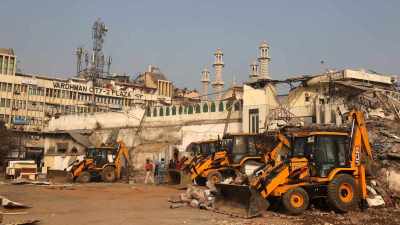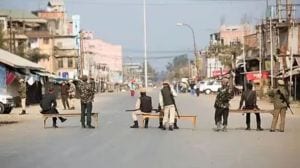Mud-slinging won8217;t do
The opposition has been quick to seize on Mohan Guruswamy's allegations of ministerial wrongdoing after he fell out with the government a...

The opposition has been quick to seize on Mohan Guruswamy8217;s allegations of ministerial wrongdoing after he fell out with the government and lost his high-profile job as adviser to the Finance Minister. But the demand for a joint parliamentary committee investigation is premature at this stage. It is irrelevant whether Guruswamy8217;s charges arise from frustration or a sense of propriety. What is relevant is, quite simply, whether there is enough evidence of rules and regulations being bent and of favouritism to justify an expensive, long-drawn out probe. Obviously the mere fact that a JPC investigation has been set up would serve the opposition8217;s objective of embarrassing the government. Parliamentary bodies are not intended for frivolous purposes or as political instruments. There must be sufficient cause for such a probe. As far as the charges about favours shown to certain corporate houses are concerned, the opposition may be skating on thin ice.
On the face of it, it is not exceptionable in itself for aprime minister or cabinet minister to attend to the complaints of corporates singly and refer the matter to the appropriate economic ministry. In general, however, case by case consideration and intercession by ministers is unwise because it invites charges of interference at best and of influencing decisions at worst. Things get messier when a home minister or an information and broadcasting minister whose responsibilities lie elsewhere get involved in business matters. Therefore to the extent it is true that the Prime Minister spoke on behalf of the Hindujas, L K Advani for Essar and Pramod Mahajan for the Mittals, they have invited trouble on themselves. While this still does not clinch the issue of whether a JPC probe is needed, something more than counter-allegations and outright denials are required to set doubts at rest.
The situation is a little different with the other accusations made by Guruswamy. The evidence on share price fixing so that BAT could acquire ITC stock through UTI is circumstantialat best. It is unlikely that a JPC will be able to turn up anything more specific than the presumption that a group of MPs was persuaded to lobby for BAT. This is neither here nor there. The data on import price fixing is more substantial and therefore makes the allegation more serious. If as Guruswamy says an inter-ministerial committee set one floor price but the final government notification raised it, this certainly calls for an explanation about the rationale for altering the price. At the least what this affair calls into question is the way the government functions. Transparency comes with establishing procedures and sticking to them.
The government should welcome the opportunity of a parliamentary discussion on l8217;affaire Guruswamy and use it to do two things. First, there must be a vigorous and thorough-going response to opposition charges. Mud-slinging will not do. Second, business and industry must be reassured about the way the government conducts its work. Everyone must be disabused ofthe notion that decisions can be fixed and lobbying with ministers can produce a Rs 5000-crore windfall.
- 01
- 02
- 03
- 04
- 05






























